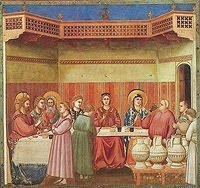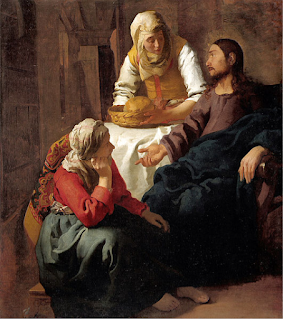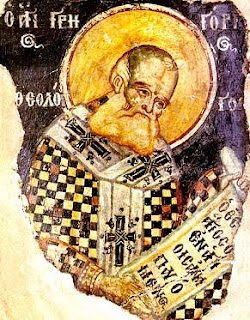Posts
Homily for 18th Sunday in ordinary time
- Get link
- Other Apps

Fr. Rene Butler Vanity of vanities! All things are vanity! This passage from Qoheleth (or Ecclesiastes) makes me think of the song made famous by Peggy Lee (pictured), “Is That All There is?” The lyrics express constant disappointment in life: Is that all there is to a fire?... to a circus?... to love? In that case, “let’s keep dancing, bring out the booze and have a ball.” But there is a big difference between Qoheleth and the song. The latter is purely pessimistic, the former is not. In fact, in Qoheleth we read many beautiful and comforting passages: “I recognized that there is nothing better than to be glad and to do well during life.” “For every man, moreover, to eat and drink and enjoy the fruit of all his labor is a gift of God.” “It is well for a man to eat and drink and enjoy all the fruits of his labor under the sun during the limited days of the life which God gives him; for this is his lot.” “Enjoy life with the wife whom you love, all the days of the fleeting life that is
MARRIAGE: THE GOOD WINE (a wedding homily), Part I By Cormac Burke
- Get link
- Other Apps

"You have kept the good wine until now". In these words the steward expressed his amazement to the bridegroom at Cana. And his amazement was redoubled when he found the bridegroom just as surprised as he was. The words should, of course, have been addressed to Jesus, who had just let himself be persuaded by Our Lady to work the first of his miracles. After thirty years of hidden life, Jesus begins to reveal the divine power that is his by nature. Surely it can be no accident that he works his first miracle on the occasion of a human celebration, and in order to provide more of what would make people merrier still at a party already filled with merriment? Is it too much to suggest that Our Lord chose this moment because he wished to make it clear that he had come to bring men happiness; not just the ultimate and perfect happiness of heaven, but also the passing though real happiness of earth? He had come to give a divine touch to human things, so that man's store
Awakened from Death: Pope Benedict Thoughts on John 11:1-45
- Get link
- Other Apps

The gospel of the resurrection of Lazarus … concerns the last “sign” fulfilled by Jesus, after which the chief priests convened the Sanhedrin and deliberated killing him, and decided to kill the same Lazarus who was living proof of the divinity of Christ, the Lord of life and death. Actually, this gospel passage shows Jesus as true Man and true God. First of all, the Evangelist insists on his friendship with Lazarus and his sisters, Martha and Mary. He emphasizes that “Jesus loved” them (John 11:5), and this is why he wanted to accomplish the great wonder. “Our friend Lazarus has fallen asleep, but I go to awaken him out of sleep” (11:11), he tells his disciples, expressing God’s viewpoint on physical death with the metaphor of sleep. God sees it exactly as sleep, from which he can awaken us. Jesus has shown an absolute power regarding this death, seen when he gives life back to the widow of Nain’s young son (see Luke 7:11-17) and to the twelve-year-old girl (see Mark 5:35-43). Precise
Homily - Martha and Mary
- Get link
- Other Apps

Fr. Micheal J. Woolley In today’s Gospel we meet for the first time in the Scriptures a women whom Jesus becomes very good friends with, named Martha. And this very brief scripture passage paints us a very detailed picture of Martha: her personality, her virtues and her shortcomings. Martha comes across as an extrovert, a take charge type of person, a woman of action. We also see that Martha possesses at least two virtuous qualities: the virtue of faith in Jesus and the virtue of hospitality. These two virtues inspire Martha to welcome Jesus and probably the twelve apostles also to her home for dinner. But what of course jumps out most to us is Martha’s shortcomings. Jesus sums them all up when he says to her “Martha, Martha, you are anxious and worried about many things.” The Lord, who sees into the heart, looks into Martha’s heart and sees that it’s not just one thing Martha is anxious and worried about, she is rather anxious and worried about many things. Ye
